Aldo Bakker exhibits new designs at Galerie Vivid Rotterdam
A solo exhibition of Dutch designer Aldo Bakker's sculptural furniture, including a minimal swing and a number of more ambiguous objects, is on display at a Rotterdam gallery (+ slideshow).
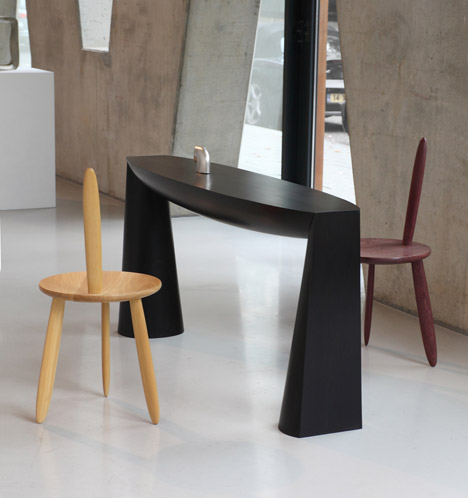
Aldo Bakker is showing a range of new pieces and updates of existing work at Galerie VIVID in Rotterdam until 26 October.
The son of Dutch designers Gijs Bakker and Emmy van Leersum, Bakker has created pieces for Danish metalware brand Georg Jensen and exhibited work at Spazio Rosanna Orlandi and Gallery Libby Sellers since he began his career making jewellery and models for his father in 1987.
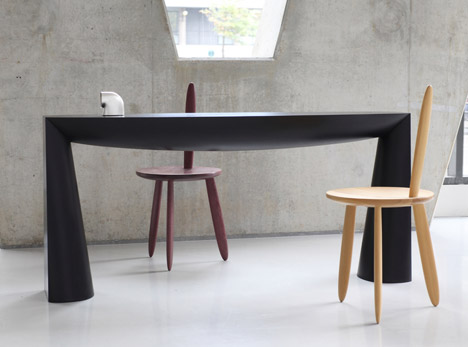
While the functions of some of his furniture designs are evident, many of his more sculptural pieces are difficult to associate with a clearly defined purpose at first glance.
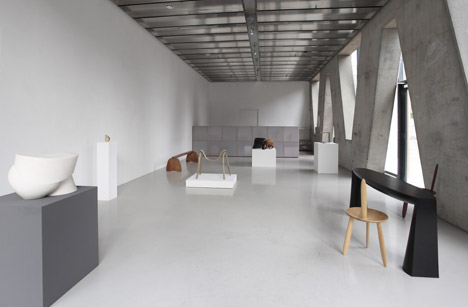
"Bakker rarely starts a design from the desire to solve a practical problem," said Dutch writer Hans den Hartog Jager in his brief biography of the designer.
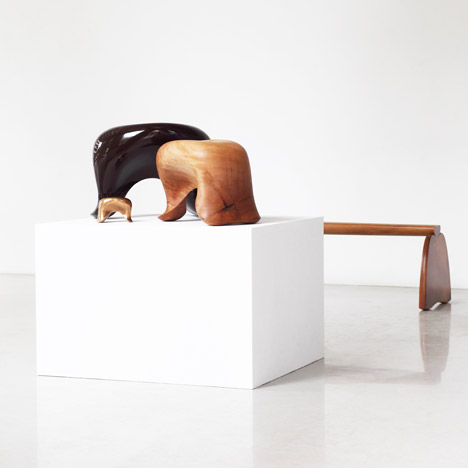
"In fact, though Bakker may unmistakably be a designer, his interest in functionality only comes in at the latest stage."
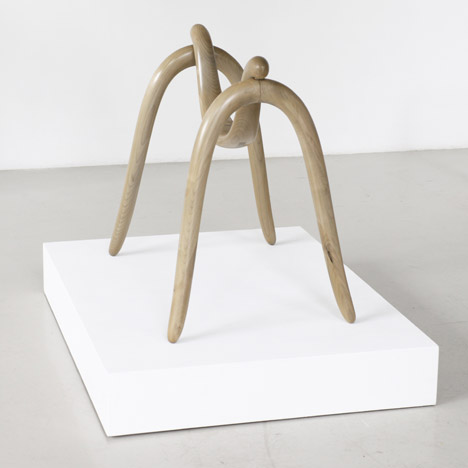
Among his new designs on show is a minimal swing, created using a U-shaped maple wood element balanced on two similar upturned pieces on either side.
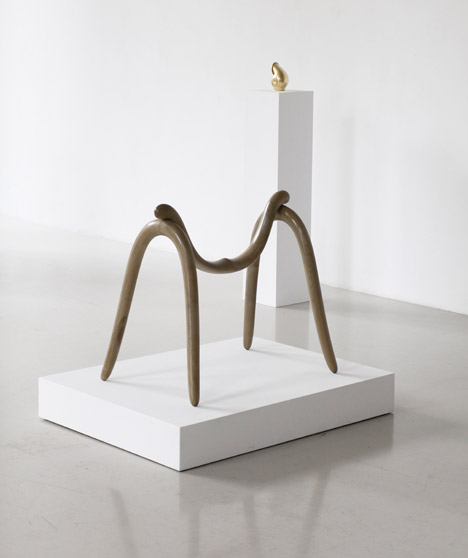
The wood is coated with iron sulphate, similar to the designer's Anura side table from last year.
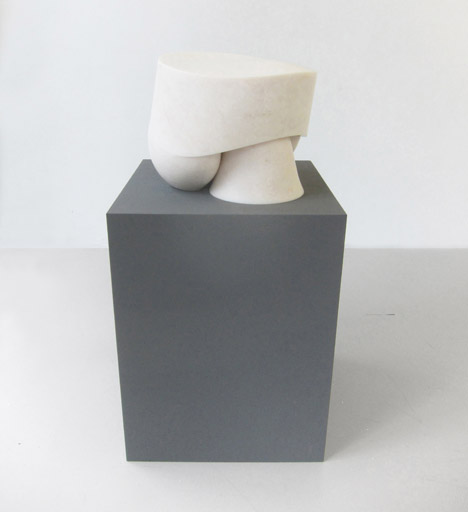
Chairs named 3dw1up feature three rounded legs that support dish-like seats, with another identical element pointing up to create a svelte backrest. The designs come in yellowheart and purpleheart timber.
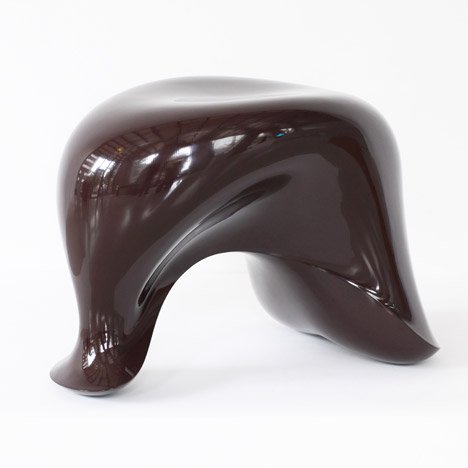
The chairs are presented alongside a dark maple wood console, with two legs and a top that are flat on their outward-facing sides and bulging on the surfaces facing in.
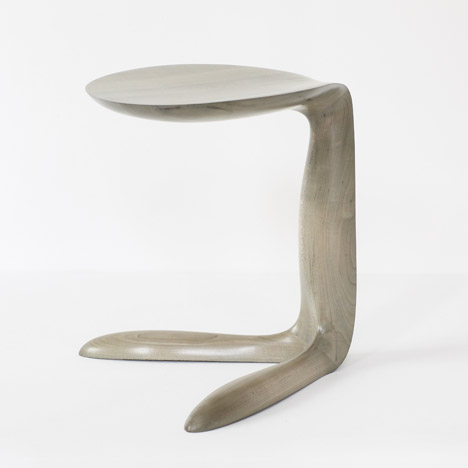
Bakker has also created a miniature bronze version of his 2010 curvaceous Tonus stool, originally coated in Japanese urushi laquer.
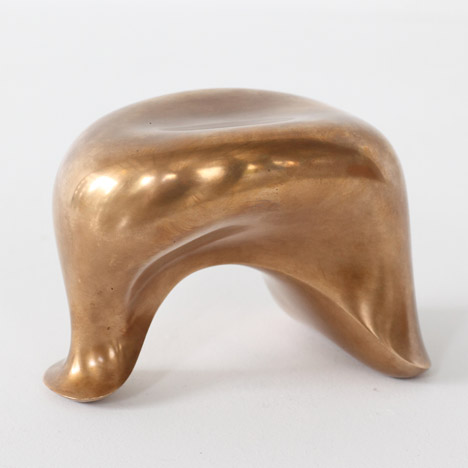
The Three Pair piece sculpted from Estremoz creme Marble has an almost flat stop, which appears to be fitted over a trio of rounded objects – another reworking of a previous design.
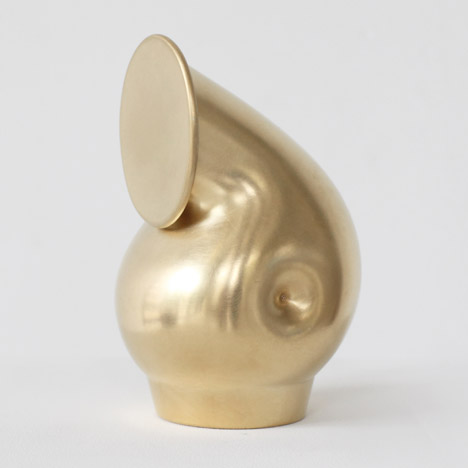
"As a result of the de- and reconstruction, many people do not recognise the function of Bakker's designs at first – sometimes Bakker seems to produce designs that have yet to find a use," said Den Hartog Jager.